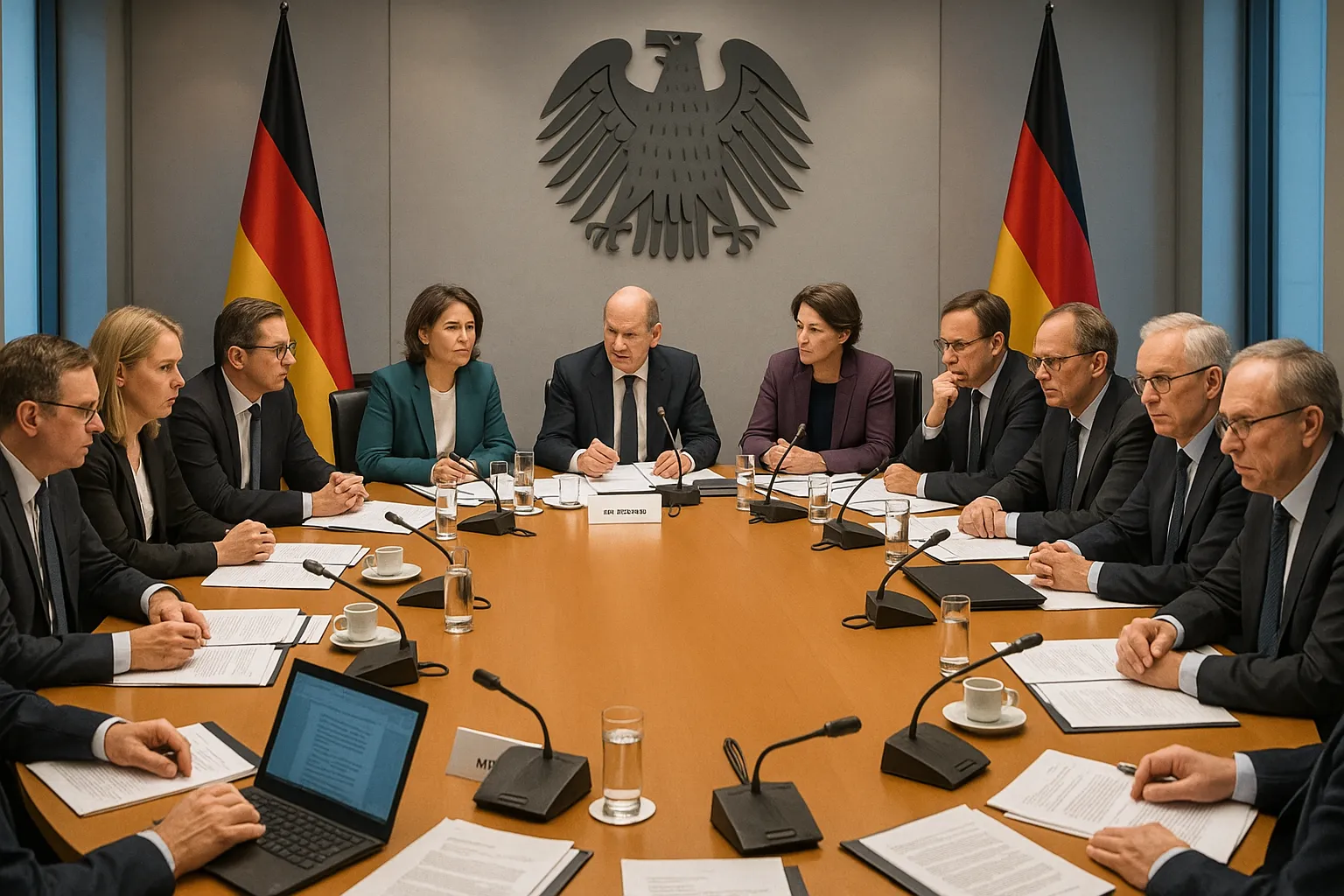Germany’s Political and Economic Landscape Shifts as Cabinet Greenlights Reforms and Industry Voices Concerns - September 3, 2025

BERLIN, Sept 3 - In a bid to streamline corporate compliance and address mounting economic pressures, Germany’s coalition government and industry stakeholders unveiled a series of measures and warnings today.
Germany’s cabinet approved revisions to the national Supply Chain Due Diligence Act that will exempt larger companies from certain documentation requirements deemed overly bureaucratic. Companies with more than 1,000 employees will no longer face routine reporting obligations until the EU Supply Chain Directive takes effect in July 2027, and breaches will only be penalized in cases of severe human rights abuses. Labour Minister Bärbel Bas estimated the changes would save businesses approximately €4 million annually.
Chancellor Friedrich Merz convened a crunch meeting with Vice-Chancellor and Finance Minister Lars Klingbeil and other senior coalition figures to resolve deepening rifts over budget cuts and welfare reforms. Merz’s calls for trimming unemployment benefits clashed with the SPD’s proposals for higher taxes on top earners, as the government races to finalize both the 2025 budget and a preliminary draft for 2026 amid a projected €30 billion shortfall in 2027.
Meanwhile, the Federal Network Agency warned that Germany could face rare electricity shortages by 2030 if the expansion of renewables stalls and demand flexibility remains insufficient. The agency’s “Security of Supply Report” urged accelerated grid upgrades, the commissioning of new gas-fired plants, and greater uptake of smart-charging for electric vehicles to avert potential shortfalls.
In a complementary move, the cabinet also approved draft legislation to cut power grid fees and lower the electricity tax to the EU minimum for energy-intensive sectors. Starting in 2026, a €6.5 billion annual subsidy package will reduce network usage charges over four years, while select industries will benefit from tax relief estimated to cost government coffers €1.5 billion in 2026 and €3 billion in 2027.
Industry groups, however, cautioned that Germany’s energy transition still risks imposing up to €5.4 trillion in costs by 2049 if policies remain unchanged. The German Chambers of Industry and Commerce (DIHK) called for streamlined regulations, expanded carbon trading, and greater EU collaboration to rein in future expenditures on grid infrastructure, imports, and decarbonization measures.
On the economic front, S&P Global’s Purchasing Managers’ Index revealed that Germany’s expansive services sector unexpectedly contracted in August, dropping to 49.3 and underscoring stagnation risks amid global headwinds.
Abroad, Foreign Minister Johann Wadephul, on a two-day visit to India, reaffirmed Germany’s support for India’s counter-terrorism efforts and hailed New Delhi’s diplomatic role in advocating peace in Europe. During talks in New Delhi with External Affairs Minister S. Jaishankar, Wadephul stressed the shared commitment to democratic values and regulatory standards between the two nations.
Categories
Autos and vehicles Beauty and fashion Business and finance Climate Entertainment Food and drink Games Health Hobbies and leisure Jobs and education Law and government Other Politics Science Shopping Sports Technology Travel and transportationRecent Posts
Tags
Archives
08/19/2025 (3) 08/20/2025 (40) 08/21/2025 (27) 08/22/2025 (22) 08/23/2025 (4) 08/24/2025 (21) 08/25/2025 (30) 08/26/2025 (24) 08/27/2025 (29) 08/28/2025 (16) 08/29/2025 (9) 08/30/2025 (13) 08/31/2025 (17) 09/01/2025 (167) 09/02/2025 (124) 09/03/2025 (149) 09/04/2025 (112) 09/05/2025 (72) 09/06/2025 (169) 09/07/2025 (162) 09/08/2025 (150) 09/09/2025 (176) 09/10/2025 (194) 09/11/2025 (194) 09/12/2025 (186) 09/13/2025 (207) 09/14/2025 (159) 09/15/2025 (175) 09/16/2025 (198) 09/17/2025 (196) 09/18/2025 (196) 09/19/2025 (207) 09/20/2025 (129) 09/21/2025 (4)